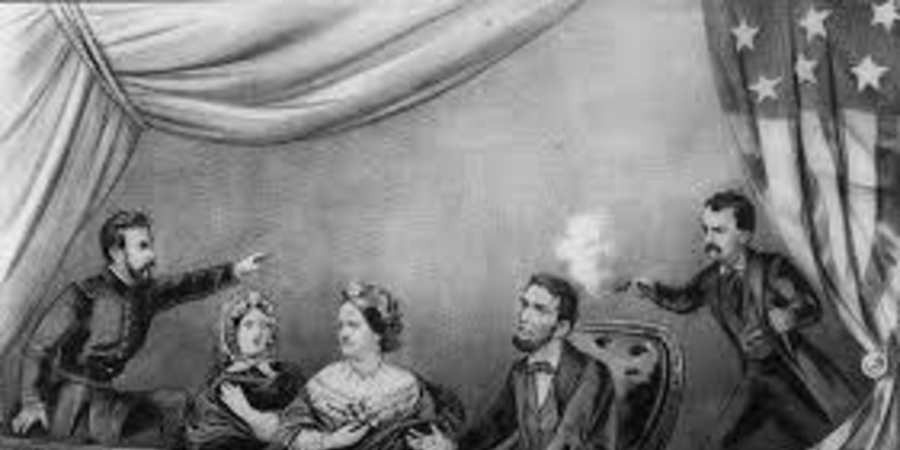Famous Political Assassinations In World History
Political assassinations have been a significant part of world history, often altering the course of nations and sparking widespread repercussions. These acts, whether motivated by ideology, vengeance, or a desire for power, have left an indelible mark on global politics. Below is a list of some of the most famous political assassinations in history and their profound impacts.
1. Julius Caesar (Roman Republic)
- Date of Assassination: March 15, 44 BCE (Ides of March)
- Location: Theatre of Pompey, Rome
- Assassins: A group of Roman senators, including Brutus and Cassius
- Reason: Caesar was perceived as a threat to the Republic due to his accumulation of power and declaration as "dictator for life."
- Impact: His assassination led to the downfall of the Roman Republic and the rise of the Roman Empire under Augustus.
2. Abraham Lincoln (United States)
- Date of Assassination: April 14, 1865
- Location: Ford’s Theatre, Washington, D.C.
- Assassin: John Wilkes Booth
- Reason: Booth, a Confederate sympathizer, opposed Lincoln’s policies, especially the abolition of slavery.
- Impact: Lincoln's death plunged the nation into uncertainty during the Reconstruction Era following the Civil War.
3. Archduke Franz Ferdinand (Austria-Hungary)
- Date of Assassination: June 28, 1914
- Location: Sarajevo, Bosnia
- Assassin: Gavrilo Princip, a Bosnian Serb nationalist
- Reason: The assassination was driven by nationalist sentiments seeking independence for Slavic territories under Austro-Hungarian rule.
- Impact: It directly triggered World War I, leading to millions of deaths and a complete redrawing of global borders.
4. Mahatma Gandhi (India)
- Date of Assassination: January 30, 1948
- Location: New Delhi, India
- Assassin: Nathuram Godse, a Hindu nationalist
- Reason: Godse opposed Gandhi's efforts for Hindu-Muslim unity and perceived him as overly accommodating to Muslims.
- Impact: Gandhi’s death intensified efforts to foster communal harmony and reaffirmed his legacy of nonviolence.
5. John F. Kennedy (United States)
- Date of Assassination: November 22, 1963
- Location: Dallas, Texas
- Assassin: Lee Harvey Oswald
- Reason: The motives behind Kennedy’s assassination remain debated, with numerous conspiracy theories persisting.
- Impact: Kennedy’s death shocked the world and left the United States grappling with questions of national security and governance.
6. Martin Luther King Jr. (United States)
- Date of Assassination: April 4, 1968
- Location: Memphis, Tennessee
- Assassin: James Earl Ray
- Reason: King was assassinated for his prominent role in the civil rights movement and his efforts to end racial segregation and discrimination.
- Impact: His death spurred further civil rights activism and led to the passage of key legislation like the Civil Rights Act.
7. Robert F. Kennedy (United States)
- Date of Assassination: June 5, 1968
- Location: Los Angeles, California
- Assassin: Sirhan Sirhan
- Reason: Sirhan, a Palestinian, cited Kennedy’s support for Israel as his motive.
- Impact: Robert’s death marked a significant blow to progressive politics and the hope for change during a turbulent era.
8. Yitzhak Rabin (Israel)
- Date of Assassination: November 4, 1995
- Location: Tel Aviv, Israel
- Assassin: Yigal Amir, a right-wing extremist
- Reason: Amir opposed Rabin’s peace efforts with Palestinians, particularly the Oslo Accords.
- Impact: Rabin’s death hindered peace efforts in the Israeli-Palestinian conflict and heightened tensions in the region.
9. Benazir Bhutto (Pakistan)
- Date of Assassination: December 27, 2007
- Location: Rawalpindi, Pakistan
- Assassin: Suicide bomber (linked to extremist groups)
- Reason: Bhutto’s progressive policies and opposition to radical elements made her a target for extremist factions.
- Impact: Her death destabilized Pakistan’s political landscape and marked a significant setback for democracy.
10. Patrice Lumumba (Congo)
- Date of Assassination: January 17, 1961
- Location: Katanga Province, Congo
- Assassins: Congolese forces with alleged backing from Belgian and CIA agents
- Reason: Lumumba was seen as a threat to Western interests due to his nationalist stance and alignment with the Soviet Union.
- Impact: His death left Congo in turmoil and highlighted the role of Cold War politics in African independence movements.
Conclusion
Political assassinations have often been turning points in history, signaling drastic changes in leadership, policy, and national or global dynamics. While these tragic events highlight the volatility of political power, they also serve as reminders of the resilience of societies in the face of such challenges.


